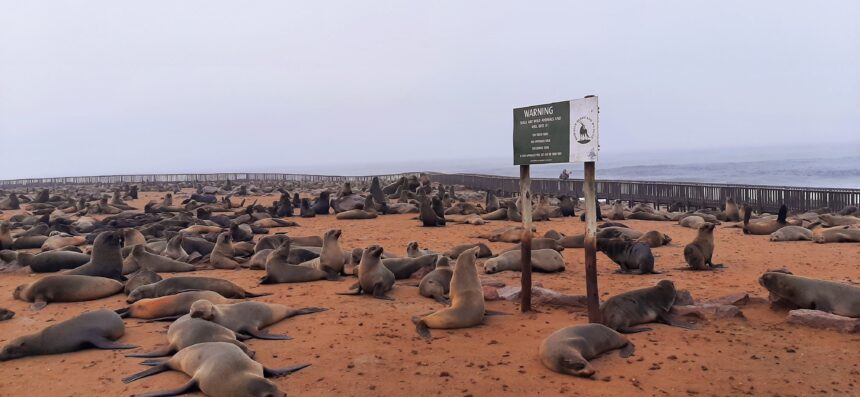WALVIS BAY – The Namibian Hake Association has secured a N$1.1 million grant from the Marine Stewardship Council (MSC) to fund a study for reducing entanglement of Cape fur seals in fishing gear used in the local hake industry.
Chairperson of the association, Matti Amukwa, told New Era the funding is crucial for maintaining Namibia’s hake certification, which expires in November this year. Renewal of the certification depends on an ongoing industry audit that includes compliance with environmental impact standards.
“One of the key areas under Principle 2 of the audit is how the industry addresses its impact on the environment — this is where the seals come in,” Amukwa explained.
He said seals are increasingly being caught in trawl nets or attacking fish on longline hooks, leading to fish losses and environmental concerns. Some seals end up being trapped and die in the process.
“The study will help us find a way to scare off seals without harming them or the fish. Hence, we are grateful for the funding,” Amukwa said.
He told New Era the equipment that will be used in the two-year study, is currently being manufactured.
MSC certification not affected
Amukwa assured that the initiative will not affect the current status of Namibian exports but will strengthen Namibia’s international standing by proving its commitment to sustainable resource management.
Namibia achieved MSC certification in November 2020. This certification ensures that hake stocks are harvested in a way that does not threaten their long-term health and minimizes damage to the surrounding ecosystem.
“We want to manage this resource responsibly, and this shows we are serious about what we are doing,” he said.
Science-backed deterrent
According to MSC, the fishery will implement a science-based deterrent method known as Targeted Acoustic Startle Technology (TAST).
Spokesperson for council, Louanne Serfontein says the project will be led by marine mammal specialist Dr Thomas Götz of the University of St Andrews, in collaboration with Namibian partners and Genus Wave, a specialist manufacturer.
TAST works by emitting low-frequency noise that triggers a startle response in seals, prompting them to flee without damaging their hearing or that of other marine life. The approach is expected to reduce harmful seal interactions and minimize catch losses.
“This is not about chasing seals away aggressively — it’s about using innovative science to prevent entanglements and catch loss in a humane, effective way,” said Serfontein.
According to her, the project will involve detailed consultations with local fishing companies, scientists and engineers to determine the most effective device designs and sound levels. Separate tests will be conducted on both trawlers and long-liners, including studies to monitor if seals get used to the sound over time.
“This initiative shows Namibia’s strong leadership in responsible fishing and marine protection. The findings will not only help the Namibian industry but could also benefit other fisheries worldwide,” she said.
The project is one of 85 funded globally this year through MSC’s Ocean Stewardship Fund, which awarded over N$40 million to drive innovation and sustainable fishing practices.
– edeklerk@nepc.com.na



